Achieving Earth Independence
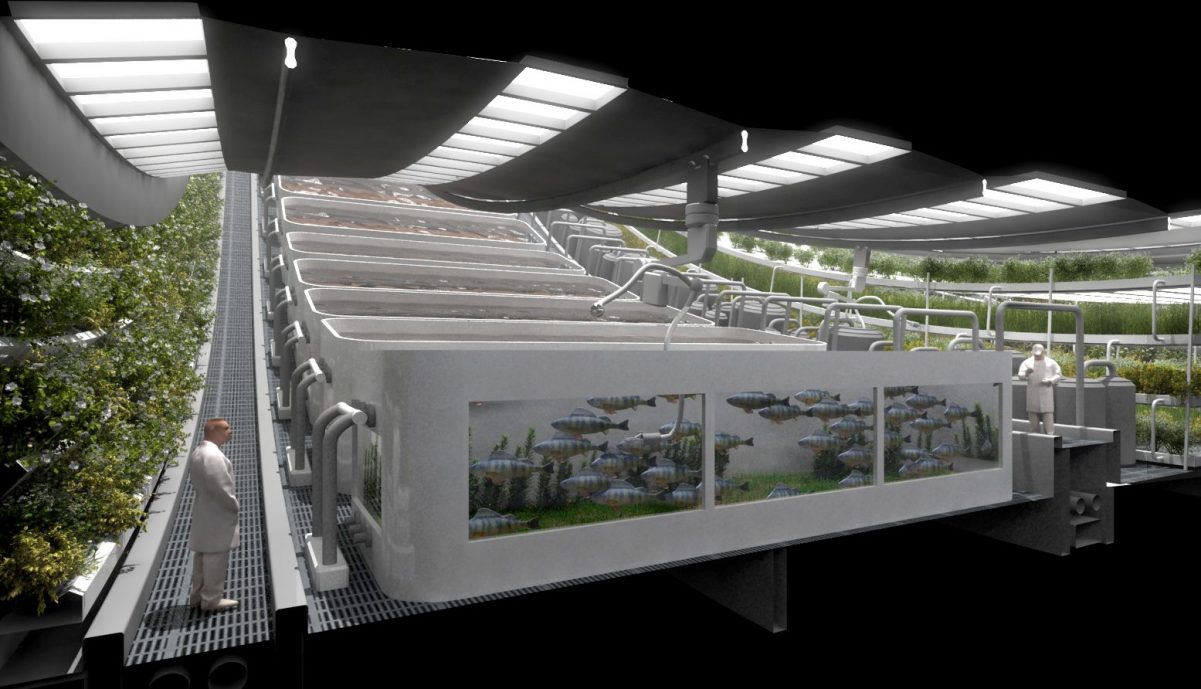
What would it take for a small, off-Earth colony to become increasingly or even completely independent of Earth?
The Achieving Earth Independence track will describe what Earth independence means, why it is so important, and specifically how each part of the colony could be reproduced using local resources. These areas include:
– Metals production and the production of parts,
– Organic and inorganic chemistry,
– Food production,
– Power systems and electronics,
– Constructing habitats from local resources,
– Ensuring the genetic viability of plants, animals, and humans.
Remarkably, the presenters will explain how each of these could be achieved within a few years of first crew arrival.
Finally, at the end of the track, attendees will discuss in a roundtable session how we as space advocates can demonstrate each of the above in an analogue setting thereby preparing the way to achieve Earth independence as humans begin to settle off Earth.
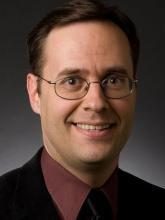
Track Chair:
Doug Plata, MD, MPH
President & Founder, The Space Development Network
Dr. Plata is a physician and public health specialist in Loma Linda, CA. His undergraduate degree was in biophysics and he went on to complete his MD and MPH with specialty training in Family and Preventive Medicine. His primary interest in space is the development of a cost-effective transportation to the Moon based upon lunar polar ice for propellant and the establishment of humanity’s first permanent foothold off Earth. A description of this Plan for Sustainable Space Development can be found at DevelopSpace.info. He has founded a new type of free-to-join space advocacy organization called the Space Development Network which can also be found at DevelopSpace.info.
Presentation: Earth Independence: Introduction & Rationales
Achieving Earth independence is the ultimate goal of many space advocates. But what exactly does this mean and why should we pursue this objective? Is Earth independence something that hill happen as a normal course of settlement eventually or can it be intentially achieved early on. Dr. Plata will describe the different aspect of achieving Earth independence and why he believes that it is not only good to pursue increasing levels of Earth independence but that full Earth independence could be achieved far earlier than many space advocates would imagine.
Track Chair:
Doug Plata, MD, MPH
President & Founder, The Space Development Network
Dr. Plata is a physician and public health specialist in Loma Linda, CA. His undergraduate degree was in biophysics and he went on to complete his MD and MPH with specialty training in Family and Preventive Medicine. His primary interest in space is the development of a cost-effective transportation to the Moon based upon lunar polar ice for propellant and the establishment of humanity’s first permanent foothold off Earth. A description of this Plan for Sustainable Space Development can be found at DevelopSpace.info. He has founded a new type of free-to-join space advocacy organization called the Space Development Network which can also be found at DevelopSpace.info.
Presentation: Earth Independence: Introduction & Rationales
Achieving Earth independence is the ultimate goal of many space advocates. But what exactly does this mean and why should we pursue this objective? Is Earth independence something that hill happen as a normal course of settlement eventually or can it be intentially achieved early on. Dr. Plata will describe the different aspect of achieving Earth independence and why he believes that it is not only good to pursue increasing levels of Earth independence but that full Earth independence could be achieved far earlier than many space advocates would imagine.
Speakers
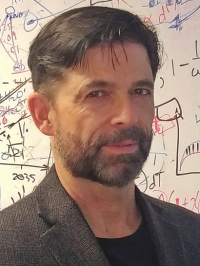

Phil Metzger
University of Central Florida – Florida Space Institute
Dr. Philip Metzger is a planetary scientist with the Florida Space Institute at the University of Central Florida performing research and technology development for asteroids, the Moon and Mars. In 2014 he retired from NASA’s Kennedy Space Center where he was on the Space Shuttle launch team and later with the International Space Station program. He co-founded the KSC Swamp Works, which is a a rapid innovation lab developing technologies to work with the resources in space. His research led to NASA’s effort to protect the historic lunar sites, including the Apollo landing sites, from rocket exhaust blast effects. He participated in lunar, Martian, and asteroid mission architecture studies and was on NASA’s technology roadmapping team. He was selected as Kennedy Space Center’s Scientist/Engineer of the Year for 2011. He received the astronaut’s Silver Snoopy award in 2011 and NASA’s Silver Achievement Medal in 2014. He was voted by the American Society of Civil Engineers (ASCE) aerospace division to receive the Outstanding Technical Contribution Award of 2016.
Presentation: Local Resources & Metallurgy
For a colony to become Earth independent, it needs resources including certain critical resources. Then it needs to be able to convert those resources into usable forms. Phil Metzger has an extensive background in what it takes from a technical standpoint to produce useful hardware from in situ resources. In this presentation he will describe some of the known resources on the Moon that will be needed for an initial base to become increasingly Earth independent. The good news is that we already have an idea of where those resources might come from on the Moon. He will also describe concepts for how metals could be extracted and refined in the lunar context.
Phil Metzger
University of Central Florida – Florida Space Institute
Dr. Philip Metzger is a planetary scientist with the Florida Space Institute at the University of Central Florida performing research and technology development for asteroids, the Moon and Mars. In 2014 he retired from NASA’s Kennedy Space Center where he was on the Space Shuttle launch team and later with the International Space Station program. He co-founded the KSC Swamp Works, which is a a rapid innovation lab developing technologies to work with the resources in space. His research led to NASA’s effort to protect the historic lunar sites, including the Apollo landing sites, from rocket exhaust blast effects. He participated in lunar, Martian, and asteroid mission architecture studies and was on NASA’s technology roadmapping team. He was selected as Kennedy Space Center’s Scientist/Engineer of the Year for 2011. He received the astronaut’s Silver Snoopy award in 2011 and NASA’s Silver Achievement Medal in 2014. He was voted by the American Society of Civil Engineers (ASCE) aerospace division to receive the Outstanding Technical Contribution Award of 2016.
Presentation: Local Resources & Metallurgy
For a colony to become Earth independent, it needs resources including certain critical resources. Then it needs to be able to convert those resources into usable forms. Phil Metzger has an extensive background in what it takes from a technical standpoint to produce useful hardware from in situ resources. In this presentation he will describe some of the known resources on the Moon that will be needed for an initial base to become increasingly Earth independent. The good news is that we already have an idea of where those resources might come from on the Moon. He will also describe concepts for how metals could be extracted and refined in the lunar context.


Rion Motley
WetSpark Innovations, LLC
Rion Motley is the managing partner of WetSpark Innovations, LLC in Newport New, VA. His company develops and works with new materials and biotech. He is also a drone developer. He studied biology at Old Dominon University while also taking classes in aerodynamics and astrophysics. Relevant to his ISDC presentation, he regularly works as a blacksmith and a machinist with broad knowledge of the fields.
Presentation: How Will We Produce Parts From Local Metals?
An Earth independent colony will need parts, lots of parts, to be able to be reproduced. In his presentation, Rion Motley will give a fascinating description of how the initial crew could go from some essential machine tools, using local metals, to produce more tools and parts for what could be an exponentially-growing production. There are many fascinating details involved and Rion’s practical experience in metallurgy and machining will help the attendees understand the possibilities.
Rion Motley
WetSpark Innovations, LLC
Rion Motley is the managing partner of WetSpark Innovations, LLC in Newport New, VA. His company develops and works with new materials and biotech. He is also a drone developer. He studied biology at Old Dominon University while also taking classes in aerodynamics and astrophysics. Relevant to his ISDC presentation, he regularly works as a blacksmith and a machinist with broad knowledge of the fields.
Presentation: How Will We Produce Parts From Local Metals?
An Earth independent colony will need parts, lots of parts, to be able to be reproduced. In his presentation, Rion Motley will give a fascinating description of how the initial crew could go from some essential machine tools, using local metals, to produce more tools and parts for what could be an exponentially-growing production. There are many fascinating details involved and Rion’s practical experience in metallurgy and machining will help the attendees understand the possibilities.
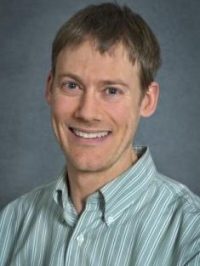

Jeff Greenblatt, PhD
Emerging Futures, LLC
Jeffery Greenblatt (Ph.D. Chemistry, UC Berkeley) is a well-known expert in the fields of energy analysis, climate policy and sustainable transportation. He left a position at Lawrence Berkeley National Laboratory in March 2018 after eight years, where he focused on multi-decadal, economy-wide modeling of greenhouse gas reduction strategies in multiple geographic regions, and analysis of emerging technologies including artificial photosynthesis and autonomous vehicles. He has published several high-profile academic studies on these topics. Since 2014, he has also been applying his analytic expertise to emerging space technologies, and founded Emerging Futures, LLC in 2016. His current focus is on building simulation models of large-scale, interconnected space “ecosystems” including human habitation, mining operations and materials production on the Moon and Mars. Jeff has also worked at NASA Ames Research Center, Princeton University, Environmental Defense Fund and Google. He lives in Berkeley, CA.
Presentation: Producing Chemicals Needed by the Colony
from lunar regolith, organic polymers will also be important for both large and small structures, including 3D-printed habitats and tools, as well as cast or extruded materials. While supplies of carbon and nitrogen are very limited on the lunar surface, we estimate that there are sufficient concentrations present in polar water deposits (as measured during LCROSS) to produce useful quantities of these materials in conjunction with large-scale mining operations. Moreover, the organic molecular precursors of these polymers will be vitally important for a wide range of uses including materials processing, sanitation, medicine, science and more. Here we outline a roadmap of organic polymers that can be created from these inorganic precursors and estimate the processes, product quantities, and energy requirements necessary for their production.
Jeff Greenblatt, PhD
Emerging Futures, LLC
Jeffery Greenblatt (Ph.D. Chemistry, UC Berkeley) is a well-known expert in the fields of energy analysis, climate policy and sustainable transportation. He left a position at Lawrence Berkeley National Laboratory in March 2018 after eight years, where he focused on multi-decadal, economy-wide modeling of greenhouse gas reduction strategies in multiple geographic regions, and analysis of emerging technologies including artificial photosynthesis and autonomous vehicles. He has published several high-profile academic studies on these topics. Since 2014, he has also been applying his analytic expertise to emerging space technologies, and founded Emerging Futures, LLC in 2016. His current focus is on building simulation models of large-scale, interconnected space “ecosystems” including human habitation, mining operations and materials production on the Moon and Mars. Jeff has also worked at NASA Ames Research Center, Princeton University, Environmental Defense Fund and Google. He lives in Berkeley, CA.
Presentation: Producing Chemicals Needed by the Colony
from lunar regolith, organic polymers will also be important for both large and small structures, including 3D-printed habitats and tools, as well as cast or extruded materials. While supplies of carbon and nitrogen are very limited on the lunar surface, we estimate that there are sufficient concentrations present in polar water deposits (as measured during LCROSS) to produce useful quantities of these materials in conjunction with large-scale mining operations. Moreover, the organic molecular precursors of these polymers will be vitally important for a wide range of uses including materials processing, sanitation, medicine, science and more. Here we outline a roadmap of organic polymers that can be created from these inorganic precursors and estimate the processes, product quantities, and energy requirements necessary for their production.
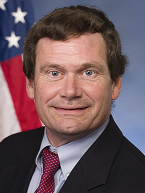

Art Harman
Coalition to Save Manned Space Exploration
Art Harman is the president of the Coalition to Save Manned Space Exploration, and served as the legislative director and space advisor for Rep. Steve Stockman (R-Texas) in the 113th Congress. He served on a panel at the 2014 ISDC in Los Angeles and was a speaker at the Mars Society 2015-2018. Harman studied foreign policy at the Institute of World Politics and is a frequent guest on radio shows on space and other policy issues.
Presentation: Artificial Gravity & Producing Habitats
It is believed that artificial gravity may be an important, or even essential requirement for a self-sustaining colony. But how can this be done? Art Harman will share his entertaining and informative perspective on this topic. He will discuss how artificial gravity in the form of centrifuges can be incorportated into a habitat, how they could be used, and what the hoped-for outcomes they would produce. He will also describe the steps that could be taken to determine the artificial gravity prescription for healthy gestation and childhood in the reduced gravity setting of the Moon or Mars. Finally, brief mention will be made as to how habitats could theoretically be produced from local resources.
Art Harman
Coalition to Save Manned Space Exploration
Art Harman is the president of the Coalition to Save Manned Space Exploration, and served as the legislative director and space advisor for Rep. Steve Stockman (R-Texas) in the 113th Congress. He served on a panel at the 2014 ISDC in Los Angeles and was a speaker at the Mars Society 2015-2018. Harman studied foreign policy at the Institute of World Politics and is a frequent guest on radio shows on space and other policy issues.
Presentation: Artificial Gravity & Producing Habitats
It is believed that artificial gravity may be an important, or even essential requirement for a self-sustaining colony. But how can this be done? Art Harman will share his entertaining and informative perspective on this topic. He will discuss how artificial gravity in the form of centrifuges can be incorportated into a habitat, how they could be used, and what the hoped-for outcomes they would produce. He will also describe the steps that could be taken to determine the artificial gravity prescription for healthy gestation and childhood in the reduced gravity setting of the Moon or Mars. Finally, brief mention will be made as to how habitats could theoretically be produced from local resources.
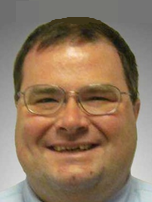

Bryce Meyer
St. Louis Space Frontier (NSS)
Current, works for a major technological university doing software research and consulting, runs two LLCs, one of which Cyan React, develops bioreactors. Previously worked as in the CTO’s office and as an Internet Network Engineer for WilTel Comminucations/Level 3 communications. Was a USAF officer, duties included Program Manager, Engineer, and Assistant Professor at VMI. Degrees: B.S. in Aerospace Engineering from University of Missouri-Rolla now Missouri S&T, M.S. in Computer Science/Software Engineering from University of West Florida, and a M.S. in Biology from Univ, of MO-St. Louis. Accomplishments: Software and Tech for Aerospace systems, and more importantly, the development and calculation of mass flows for closed cycle space farms that include bioreactors. Publications: numerous, key publications:
http://www.nss.org/settlement/journal/NSS-JOURNAL-Multistage-Evolving-Space-Farms.pdf
https://arc.aiaa.org/doi/pdf/10.2514/6.2018-5144
Presentation: How Will Food be Grown in an Initial Colony?
It is fairly obvious that a colony would need to produce all of its food in order to achieve Earth independence. It is a complicated topic with a lot of interesting details. Bryce has a good theoretical as well as practical foundation in agriculture including how food can be grown in controlled environments such as the greenhouse setting. From his study and research he is able to give a good description of how a small base could grow plants in a manner that supplies the nutritional needs of the crew.
Bryce Meyer
St. Louis Space Frontier (NSS)
Current, works for a major technological university doing software research and consulting, runs two LLCs, one of which Cyan React, develops bioreactors. Previously worked as in the CTO’s office and as an Internet Network Engineer for WilTel Comminucations/Level 3 communications. Was a USAF officer, duties included Program Manager, Engineer, and Assistant Professor at VMI. Degrees: B.S. in Aerospace Engineering from University of Missouri-Rolla now Missouri S&T, M.S. in Computer Science/Software Engineering from University of West Florida, and a M.S. in Biology from Univ, of MO-St. Louis. Accomplishments: Software and Tech for Aerospace systems, and more importantly, the development and calculation of mass flows for closed cycle space farms that include bioreactors. Publications: numerous, key publications:
http://www.nss.org/settlement/journal/NSS-JOURNAL-Multistage-Evolving-Space-Farms.pdf
https://arc.aiaa.org/doi/pdf/10.2514/6.2018-5144
Presentation: How Will Food be Grown in an Initial Colony?
It is fairly obvious that a colony would need to produce all of its food in order to achieve Earth independence. It is a complicated topic with a lot of interesting details. Bryce has a good theoretical as well as practical foundation in agriculture including how food can be grown in controlled environments such as the greenhouse setting. From his study and research he is able to give a good description of how a small base could grow plants in a manner that supplies the nutritional needs of the crew.
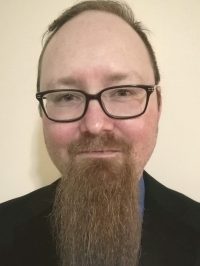

Chris Wolfe
The Space Development Network
Chris is a systems integration engineer for Sirius XM Satellite Radio in Washington, DC. He previously worked in automation system support and software QA with RCS, a subsidiary of iHeart Media. A lifetime enthusiast and occasional space blogger, his focus is exploring practical colonization of the Moon, Mars and free space. Chris’s blogging efforts obtained a seal of approval from Winchell Chung, curator of the incomparable science fiction reference site Atomic Rockets.
Presentation: Meat, Nutritional Needs, & Culinary Arts
An Earth-independent colony will not only need to know how to grow food but it will need to know what foods to grow in order to meet the nutritional needs of the colony. Yes, eventually a large enough settlement will be able to grow everything. But what steps should an initial, small colony take to get started? Yes, there will be plants. But what about fish, pigs, or even beef? Is that practical early on? This is a topic which Chris has explored extensively and has deep knowledge about. Come and enjoy a fascinating presentation about the possibilities.
Chris Wolfe
The Space Development Network
Chris is a systems integration engineer for Sirius XM Satellite Radio in Washington, DC. He previously worked in automation system support and software QA with RCS, a subsidiary of iHeart Media. A lifetime enthusiast and occasional space blogger, his focus is exploring practical colonization of the Moon, Mars and free space. Chris’s blogging efforts obtained a seal of approval from Winchell Chung, curator of the incomparable science fiction reference site Atomic Rockets.
Presentation: Meat, Nutritional Needs, & Culinary Arts
An Earth-independent colony will not only need to know how to grow food but it will need to know what foods to grow in order to meet the nutritional needs of the colony. Yes, eventually a large enough settlement will be able to grow everything. But what steps should an initial, small colony take to get started? Yes, there will be plants. But what about fish, pigs, or even beef? Is that practical early on? This is a topic which Chris has explored extensively and has deep knowledge about. Come and enjoy a fascinating presentation about the possibilities.
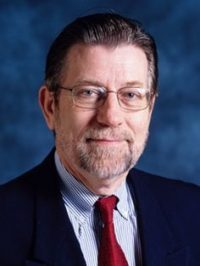

Alex Ignatiev
Lunar Resources, Inc.
Dr. Alex Ignatiev is the Founder and Chief Technology Officer of Lunar Resources, Inc. In addition, he is currently an Emeritus Professor and the former Director of the Center of Advanced Materials at the University of Houston. He has worked in space technology development since 1986 when he conceived of the concept of thin-film growth in the ultra-vacuum of space. He has numerous awards including having been elected to the International Academy of Astronautics and the Kazakhstan National Academy of Sciences, and has been appointed World Class Professor at the Gwangju Institute of Science and Technology, Korea, and Senior Fulbright Scholar at the University of Split, Yugoslavia. He was PI on the Wake Shield Facility program, which has flown three times on the Space Shuttle, and jointly developed the first concepts on the utilization of the vacuum on the Moon for the growth of thin-film solar cells. Dr. Ignatiev holds a BS from University of Wisconsin, a Ph.D. from Cornell University, has 25 patents and over 320 publication, is on the editorial boards of two scientific journals, and is a member of 12 scientific societies.
Presentation: Power Systems & Electronics
To create a self-sustaining colony, among other things it would need to produce its own power systems. What would it take to accomplish this and can it actually be done? This presentation will describe not only the steps that can be followed to produce solar cells from lunar material but also the experiments that have been conducted by Dr. Ignatiev and colleages which actually demonstrated these processes using simulated lunar materials. This presentation will also briefly mention describe how the stockpiling of large quantities of electronics can buy the colony time to implement technology protocols to produce electronics from local sources.
Alex Ignatiev
Lunar Resources, Inc.
Dr. Alex Ignatiev is the Founder and Chief Technology Officer of Lunar Resources, Inc. In addition, he is currently an Emeritus Professor and the former Director of the Center of Advanced Materials at the University of Houston. He has worked in space technology development since 1986 when he conceived of the concept of thin-film growth in the ultra-vacuum of space. He has numerous awards including having been elected to the International Academy of Astronautics and the Kazakhstan National Academy of Sciences, and has been appointed World Class Professor at the Gwangju Institute of Science and Technology, Korea, and Senior Fulbright Scholar at the University of Split, Yugoslavia. He was PI on the Wake Shield Facility program, which has flown three times on the Space Shuttle, and jointly developed the first concepts on the utilization of the vacuum on the Moon for the growth of thin-film solar cells. Dr. Ignatiev holds a BS from University of Wisconsin, a Ph.D. from Cornell University, has 25 patents and over 320 publication, is on the editorial boards of two scientific journals, and is a member of 12 scientific societies.
Presentation: Power Systems & Electronics
To create a self-sustaining colony, among other things it would need to produce its own power systems. What would it take to accomplish this and can it actually be done? This presentation will describe not only the steps that can be followed to produce solar cells from lunar material but also the experiments that have been conducted by Dr. Ignatiev and colleages which actually demonstrated these processes using simulated lunar materials. This presentation will also briefly mention describe how the stockpiling of large quantities of electronics can buy the colony time to implement technology protocols to produce electronics from local sources.
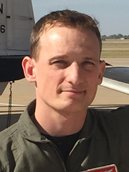

Dr. Alex Layendecker
Space Development Network
Dr. Alexander Layendecker is a graduate of the United States Air Force Academy and served seven years as an Air Force space operations officer. During that time, he worked in both space launch and recovery as an instructor, and as a space tactics specialist for the USAF’s operational combat forces. He later transitioned to Combat Search and Rescue, and currently serves as a helicopter pilot in the HH-60G Pave Hawk. He completed a Masters of Public Health in 2014 and a PhD in Human Sexuality in 2016. Dr. Layendecker’s graduate research focused on human sexuality and reproduction factors in off-Earth environments, and the future research that will be needed to make the long-term colonization of other worlds a viable possibility. He has given several talks on the topic at commercial space conferences, and is heavily experienced in briefing large audiences of industry and military professionals. He lives in Cape Canaveral, Florida.
Recently published: Springer-Hill Handbook of Life Support Systems for Spacecraft and Extraterrestrial Habitats – Logistics of Reproduction
Presentation: Children, Families, & Population Growth
Alex will be tackling to topic of children and families for achieving Earth independence. He will provide an overview of the challenges to human copulation/reproduction in space environments with respect to sustaining multi-generational colonies, and what can be done to address them. He will include a review of the history of research, current/future research, and small plant/animal experiments on reproduction that have already taken place.
Dr. Alex Layendecker
Space Development Network
Dr. Alexander Layendecker is a graduate of the United States Air Force Academy and served seven years as an Air Force space operations officer. During that time, he worked in both space launch and recovery as an instructor, and as a space tactics specialist for the USAF’s operational combat forces. He later transitioned to Combat Search and Rescue, and currently serves as a helicopter pilot in the HH-60G Pave Hawk. He completed a Masters of Public Health in 2014 and a PhD in Human Sexuality in 2016. Dr. Layendecker’s graduate research focused on human sexuality and reproduction factors in off-Earth environments, and the future research that will be needed to make the long-term colonization of other worlds a viable possibility. He has given several talks on the topic at commercial space conferences, and is heavily experienced in briefing large audiences of industry and military professionals. He lives in Cape Canaveral, Florida.
Recently published: Springer-Hill Handbook of Life Support Systems for Spacecraft and Extraterrestrial Habitats – Logistics of Reproduction
Presentation: Children, Families, & Population Growth
Alex will be tackling to topic of children and families for achieving Earth independence. He will provide an overview of the challenges to human copulation/reproduction in space environments with respect to sustaining multi-generational colonies, and what can be done to address them. He will include a review of the history of research, current/future research, and small plant/animal experiments on reproduction that have already taken place.


Christian Meza
Tucson L5 Space Society
Christian Meza serves as the President of the Tucson L5 Space Society. He studied astrophysics at the University of Arizona – Tucson. He is the Director of Photography for ChristianMezaMedia and Cinematrographer for Desert Owl Productions. He has served on the Board of Advisors for Enterprise in Space and is the Chief Technical Officer for Aerolite Meteorites, Inc.
Presentation: The Moon-Mars Analogue Base
Many analogue bases are exploration oriented. But what would a new type of analogue base, one which was development and settlement oriented look like? In the Achieving Earth Independence track, Christian will describe the current thinking of what such an analogue base might look like, the worldwide network of helpers which could contribute to its development, and some of the public outreach and public interest that it would generate. Additionally, the base could serve as a focal point for space advocates to work together on a project to illustrate how an early colony could become increasingly (or perhaps completely) Earth independent.
Christian Meza
Tucson L5 Space Society
Christian Meza serves as the President of the Tucson L5 Space Society. He studied astrophysics at the University of Arizona – Tucson. He is the Director of Photography for ChristianMezaMedia and Cinematrographer for Desert Owl Productions. He has served on the Board of Advisors for Enterprise in Space and is the Chief Technical Officer for Aerolite Meteorites, Inc.
Presentation: The Moon-Mars Analogue Base
Many analogue bases are exploration oriented. But what would a new type of analogue base, one which was development and settlement oriented look like? In the Achieving Earth Independence track, Christian will describe the current thinking of what such an analogue base might look like, the worldwide network of helpers which could contribute to its development, and some of the public outreach and public interest that it would generate. Additionally, the base could serve as a focal point for space advocates to work together on a project to illustrate how an early colony could become increasingly (or perhaps completely) Earth independent.
Roundtable – How Can We Make Progress?



